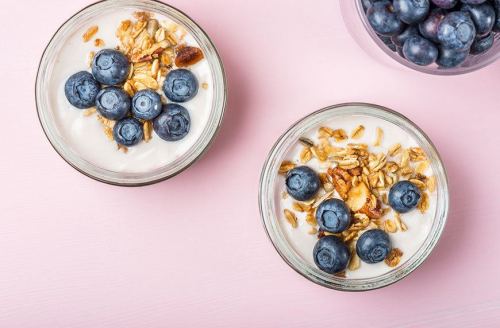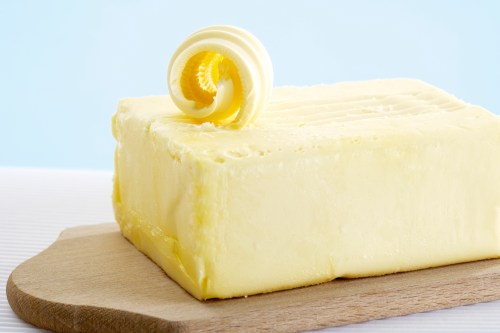Our editors independently select these products. Making a purchase through our links may earn Well+Good a commission
When cinnamon and water are put together, they make quite the potent power duo. You know, like vitamin D and calcium or Martha Stewart and Snoop Dogg.
Experts in This Article
founder and director of Real Nutrition
celebrity chef, certified nutritionist, and Reiki master
No, really! Cinnamon water is a tasty, easy way to enjoy a hydrating, antioxidant-rich beverage. “It’s essentially cooled cinnamon tea, made by simmering water in a pot with a fresh cinnamon stick to infuse the two together. Then, it’s often cooled [before drinking],” says chef and nutritionist Serena Poon, founder of Culinary Alchemy and Just Add Water.
Although sipping on cinnamon water throughout the day isn’t exactly the be-all and end-all of well-being, Poon says it has a bevy of benefits for a more holistic approach to wellness. “Something that I talk about in my Culinary Alchemy programs is the intersection of physical, emotional, and spiritual health. In my experience, true optimal health cannot happen unless it is within this holistic purview,” Poon says.
In other words: You can’t simply chug something (yes, evenlemon water—chill!) and expect it to work miracles. That said, Poon recommends integrating a cinnamon drink into “a holistic lifestyle that includes eating wholesome foods, getting rest, balancing hormones, exercising, and taking care of your mental and physical health” to reap the most benefits of this bevy.
Now that we’ve got the little “lesson on maintaining a practical perspective” out of the way, let’s dive into the potential perks of adding cinnamon water to your daily routine, according to dietitians.
Health benefits of drinking cinnamon water
1. Cinnamon water is anti-inflammatory and packed with antioxidants
Adding cinnamon to your water is hydrating, delicious, and it can offer health benefits to boot. This is largely due to cinnamon’s anti-inflammatory perks, says Amy Shapiro, MS, RD, CDN, a registered dietitian and the founder and director of Real Nutrition. “Cinnamon water is rich in antioxidants, like polyphenols, which decrease inflammation in the body and lowers the risk for disease,” she says.
2. It can be beneficial for heart health
Shapiro also notes that thanks to cinnamon’s anti-inflammatory properties, it’s been linked to positive heart health outcomes. “Research has shown a connection between cinnamon and reducing the risk for heart disease,” Shapiro says. “[By consuming] about a three-quarter teaspoon serving daily, cinnamon can potentially help reduce cholesterol, triglycerides, LDL, and blood sugar levels,” she says. Lower levels of cholesterol, triglycerides, and LDL have been linked to better heart health outcomes by lowering the risk for heart disease.
3. It can potentially support cognitive function
Some studies shows that ingesting cinnamon could potentially help upregulate and protect essential proteins in the body that support cognitive function. “In studies conducted on mice, cinnamon has helped to reduce the effects of neurodegenerative diseases like Alzheimer’s and Parkinson’s by improving motor function and protecting neurons. That said, more studies are needed on humans [to conclusively make this determination],” Shapiro says.
4. It has antifungal and antibacterial properties
According to Shapiro, cinnamon contains cinnamaldehyde, a naturally-occurring flavonoid compound, with antifungal and antibacterial properties that can potentially help reduce infections. Recent studies are also examining the effects of cinnamaldehyde and cinnamon essential oil and their ability to support antibiotic treatments against bacteria, especially when it comes to resistant strains and superbugs, although more research is needed on the topic.
5. It may have spiritual meaning
Taking into consideration a holistic approach to well-being, Poon says it’s worth noting cinnamon’s spiritual significance. According to some folks, cinnamon is a sign of abundance and is used to spiritually invite prosperity into one’s life. “Cinnamon [is associated with] energizing, stimulating the senses, and promoting a sense of vitality and productivity, all of which are necessary for abundance,” mystic and author Nikki Van De Car, previously shared with Well+Good.
Tips for drinking cinnamon water safely
Cinnamon water may not be right for everyone. “There are a few contraindications for cinnamon,” Poon says. “In high doses cinnamon can be toxic for the liver, so people who have liver disease may want to use caution. And like many things, there is little research on the effects of cinnamon on pregnant women, so that community would also likely want to avoid this beverage.”
Meanwhile, Shapiro agrees that pregnant or nursing women should also exert some caution when it comes to consuming large amounts of cinnamon daily. Shapiro also adds that folks who take medications should also check with their doctor or healthcare provider as it can have a potential interaction with certain prescriptions. Either way, Poon and Shapiro note that it’s always best to consult with a medical professional to ensure enjoying a cinnamon drink or other recipes with cinnamon are right (and safe) for you.
How much cinnamon to use for optimal flavor and anti-inflammatory perks
According to Shapiro, drinking cinnamon water regularly—within the recommended daily intake—is generally considered safe. So, how much cinnamon should to put in your water? Shapiro says it’s important to start slow before working your way up. Additionally, she recommends splitting up the dosage throughout the day to avoid any potential adverse reactions by ingesting it all at once. Consuming too much cinnamon has been linked to potentially causing liver toxicity and can be harmful if ingested in large doses.
As such, Shapiro’s recommended daily intake of cinnamon water is no more than two cups daily. “I would recommend about one to two cups per day with about a half-teaspoon of cinnamon in each serving,” she says. Cinnamon water can be consumed at any point throughout the day, especially considering most folks are chronically dehydrated (approximately 75 percent of Americans!), so it’s a great way to stay on top of your hydration goals.
How to make cinnamon water
Fortunately, making cinnamon water is as easy as it gets when it comes to “cooking.” The only ingredients you need are a few fresh sticks of cinnamon and some good ol’ H2O.
Shapiro’s easy go-to recipe calls for steeping two cinnamon sticks in hot water for 15 to 20 minutes before straining the mixture. It can be consumed either hot or cold, she says. If using ground cinnamon, Shapiro recommends starting with a half-teaspoon serving before working up to a full teaspoon.
Meanwhile, Poon’s cinnamon water recipe is very similar to Shapiro’s; The only difference is a shorter cooking time. “Boil a bit of water and then cool to a simmer. Drop in the cinnamon stick and let it simmer until the water turns a deep brown, up to 10 minutes. Take the liquid off of the stove, remove the cinnamon stick and let it cool completely before enjoying,” Poon says.
Of course, you can skip the entire cooking process altogether and opt for store-bought cinnamon tea instead that offers similar benefits with greater convenience. And, if cinnamon water isn’t exactly your cup of tea, there are tons of delicious ways to sprinkle (pun intended) more of this anti-inflammatory spice throughout the day. For example, you could make tasty cinnamon-sugar baked apple donuts or perhaps Jennifer Garner’s “famous” fiber-rich cinnamon toast recipe?
Perhaps this cozy vegan cinnamon donut recipe will tickle your fancy:
Sign Up for Our Daily Newsletter
Get all the latest in wellness, trends, food, fitness, beauty, and more delivered right to your inbox.
Got it, you've been added to our email list.










